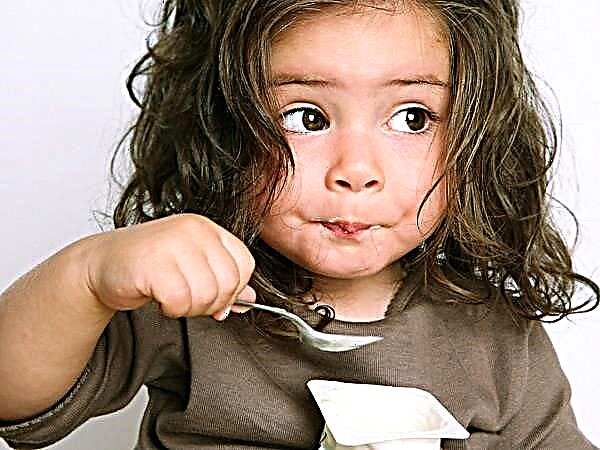
A child's bad breath cannot but worry his parents. Indeed, this phenomenon does not always have relatively harmless reasons associated with insufficient hygiene or food eaten the day before. Sometimes such a baby needs a full-fledged medical examination, which will help identify the cause and eliminate it. We will tell you about why a child may have bad breath in this article.

Origin
A strong unpleasant fetid odor from the mouth in medicine is called "halitosis". This concept does not imply any one specific disease. This is a whole complex of problems with the human body, which can cause the rapid growth of anaerobic microbes, which create this "aroma".

If a child has a bad breath, this is not always a signal that the problem lies in the unhealthy oral cavity. "Malfunctions" can be caused by "failures" in the ENT organs, and in the digestive system, and in the kidneys. Thus, the root causes of the appearance of bad breath can be quite diverse, and the mechanism is always the same. Aerobic microbes live and develop in the mouth of a healthy child. Their task is to prevent the development of anaerobic "brothers", which include streptococci, Escherichia coli and a number of other microorganisms.
If the balance of microflora in the mouth is disturbed for some reason, and anaerobic bacteria begin to quantitatively and qualitatively prevail over aerobic bacteria, a fetid odor appears.

Anaerobic (fetid) bacteria feed on protein plaque on the tongue, teeth, gums, and when they multiply, they release volatile sulfur and non-sulfur compounds. Depending on what kind of connection will be formed, what will smell from the mouth depends:
- methyl mercaptan - the simplest gas, giving the smell of rotten cabbage and feces;
- allyl mercaptan - a colorless gas that forms the smell of garlic;
- hydrogen sulfide - gas with a sweetish smell, giving the smell of rotten eggs, feces;
- dimethyl sulfide - a gas compound that gives a pronounced chemical smell of sulfur or gasoline;
- putrescine - an organic compound that gives off the smell of rotting meat;
- dimethylamine - a compound that causes the smell of fish and ammonia;
- isovaleric acid - a compound that explains the smell of sweat, spoiled milk.

There are about two dozen such compounds, and their chemical compositions and features have no practical application for parents. After all, the main task is to find the source of the spread of anaerobic microbes.
Halitosis is eliminated only when its true cause is eliminated.
Common Factors
The reasons why a child has bad breath can be physiological and pathological. In the first case, we can talk about:
- violation of hygiene rules - insufficiently thorough cleaning of teeth and gums, rinsing the mouth;
- dietary habits - bad breath becomes due to the products that the child eats (garlic can spoil the exhaled air even a day after eating it, and the onion smell persists for up to 8 hours);
- small sores and sores in the mouthdue to natural causes (teething, for example).
The list of pathological causes is more extensive, it includes various ENT ailments, dental diseases and problems with the digestive system:
- caries, stomatitis, periodontal disease, etc.
- pathology of the upper respiratory tract (chronic or lingering rhinitis, adenoiditis, pharyngitis, laryngitis, tonsillitis, tonsillitis);
- lower respiratory tract diseases (bronchitis, tracheitis, pneumonia);
- diseases of the digestive system (gastritis, stomach ulcer, enzyme deficiency, which leads to disorders of the digestive process);
- diabetes;
- kidney disease, renal failure;
- malignant tumors and neoplasms of internal organs.
Nonspecific reasons deserve special attention. Often, children have bad breath, not only because they have a certain disease. The smell can have psychosomatic reasons - severe stress, fear, fright, long-term psychological experiences. Another reason that parents should be aware of is disturbances in the surrounding microclimate. If the child breathes in too dry air, the mucous membranes of the nose and oropharynx dry out, as a result of which aerobic microbes cannot effectively resist anaerobic microbes, and bad breath appears.

If the child does not eat regularly, skips meals, the smell may be the smell of food that is not completely digested in the stomach, and rises up the esophagus. This does not mean that the child has digestive disorders, in this case the smell is a signal for parents to establish proper and rational nutrition. Most often, in children, odor from the mouth becomes a consequence of gastro-oesophageal refluxes, which are very common in childhood. With them, part of the food is thrown back into the esophagus. This problem is age-related, and in most cases it is successfully "outgrown" by babies.

Popular rumor often attributes the appearance of bad breath to such a reason as parasites in the baby's body. Official medicine has not yet revealed any reasonable connection between worms and halitosis. Many children with an unpleasant odor do not have parasitic diseases; no traces of worms are found in their feces.
At the same time, children with helminthic infestations often do not suffer from bad breath, and their parents bring them to see a doctor due to completely different symptoms.

The nature of the smell
Some pathologies in their symptoms have unpleasant and characteristic symptoms of halitosis. So, there are smells that should definitely alert parents, and make them immediately pay a visit to the pediatrician:
- Acetone. Acetone from the mouth of a child may smell due to the development of diabetes. And if a child has an unpleasant acetone odor against a background of high temperature, then this may indicate the development of acetone syndrome. A faint acetone odor can accompany periods of fasting.
- Rotting. A putrid odor appears with complicated caries, with serious dental problems. If there are none, then the child should be examined by a pediatric gastroenterologist, since the smell of rotting meat often accompanies diseases of the stomach, duodenum, and pancreas. It is characteristic that he appears at the very initial stage of ailments.


- Sweetish smell. A pronounced sweet smell with sugary tints may indicate a purulent process. It usually develops in the nasopharynx, mouth, throat. Such a smell can be observed in a child with angina, bacterial rhinitis, adenoids. If the ENT doctor does not find any pathologies, it is imperative to show the child to a gastroenterologist who examines the baby's liver. Some liver pathologies are accompanied by the appearance of a sharp sweet odor from the mouth.
- Sour smell. The appearance of a pronounced sour odor may indicate that the child has reflux. In infants, such a smell can occur often, as the body's reaction to the introduction of complementary foods, to a change in the mixture. In this case, the smell has a certain shade of sour milk. A sour smell in children at the age of 2-3 always indicates stomach problems. Survey is required.


- Smell of ammonia. Such a smell appears during periods of severe illness associated with intoxication of the body. If the appearance of the smell was not preceded by a disease, this should be especially alarming - an ammonia odor with a sharp manifestation often accompanies kidney disease, the development of renal failure. A weak ammoniacal odor may indicate the development of diabetes mellitus.
- Yeast smell. Fresh yeast from the mouth of the child can smell due to candidiasis. Fungi of this family, multiplying, emit a specific smell.

- The smell of rotten eggs. This smell usually appears in diseases of the stomach and intestines. Sometimes it resembles the smell of feces. The symptom requires a mandatory examination by a gastroenterologist.
- The smell of iodine. The aroma characteristic of this antiseptic in children usually appears due to the oversaturation of the body with iodine. This substance tends to accumulate, and therefore if a nursing mother takes iodine preparations, and the same substance is contained in complementary foods (in a mixture, for example), then a corresponding odor may appear from the mouth of a small child. In children over 10 years of age, the appearance of an iodized odor may indicate an iodine intolerance.
- Metallic smell. The smell of metal from the mouth of a child may indicate that he has ailments associated with the onset and development of anemia.


Diagnostics
Parents need to observe carefully to understand what else has changed in the child besides the bad breath. All internal diseases usually have additional symptoms and signs:
- With a sour smell, it is important to make sure that the child does not have heartburn, does not bother with the stomach, and everything is in order with the stool. And in case of hydrogen sulfide "aroma", it is imperative to monitor whether the child has belching, nausea, or vomiting often.
- With a bitter smell you need to examine the tongue and oral cavity of the baby for the presence of yellow or grayish plaque, which are characteristic of many pathologies of the liver and gallbladder. When an acetone or ammonia smell appears, you need to measure the baby's temperature, collect urine for analysis, and then go to the clinic.
Sometimes bad breath is a contrived problem. Overly impressionable mothers and grandmothers find him where he really is not.
After all, if a child has an unpleasant smell from the mouth in the morning, before he had time to wash and brush his teeth, this does not mean the pathological causes of the phenomenon.


There are home tests for halitosis. The first is carried out with a spoon. With the handle of a cutlery, they gently take a little plaque from the child's tongue and assess it for smell. The second involves the ability of saliva to "absorb" odors. The child is asked to lick the wrist and wait for the saliva to dry, after which its smell is assessed. Both methods are quite subjective.


The doctor can tell in more detail about the presence of an odor and its probable causes, after conducting an accurate medical test for halitosis. Research is called halimetry. It includes a simple procedure - the child will be asked to exhale into a special device, and the analysis of the exhaled air will show if it contains hydrogen sulfide, sulfur and non-sulfur compounds. The entire study takes no more than fifteen minutes. If bad breath is established, the doctor may take samples of plaque from the tongue and inner surface of the cheeks for bacteriological examination. The child's saliva samples will also be sent to the laboratory in a sterile container.
Parents will be given referrals to visit specialists such as a pediatric dentist (dentist), otolaryngologist, gastroenterologist, and nephrologist. The dentist will examine and sanitize the oral cavity. If sore teeth or gums are found, the baby will immediately receive the necessary treatment. ENT will assess the condition of the tonsils, nasopharynx, larynx. In case of detection of diseases, he will prescribe adequate therapy. The gastroenterologist will do an ultrasound of the abdominal organs, if necessary, endoscopy with a mandatory sampling for the analysis of gastric juice for acidity (especially with sour breath). Based on the analysis of urine, the nephrologist will draw a conclusion about the state of the child's excretory system.

To get the most reliable result, the day before visiting the doctor, the child does not need to be given products containing sulfur compounds - garlic and onions, as well as spicy foods.
If possible, you should stop taking all medications. In the morning before going to the clinic, the child should not brush his teeth, rinse his mouth, use a freshener or chewing gum.
How to get rid of?
Treatment of halitosis should be based on treating the cause that caused bad breath, since there is absolutely no point in fighting the effect without eliminating the cause. Usually, treatment for bad breath includes general and specific guidelines. General ones concern all reasons without exception. Private - are relevant when the underlying disease is identified.
General recommendations:
- The child must brush his teeth properly. This should be done not immediately after the baby woke up, but after breakfast, and then in the evening after dinner, just before bedtime. The brush should be comfortable, moderately stiff, with a special "platform" for cleaning the tongue and cheeks. Show your child how to use it correctly. Children from 6-7 years old during the evening brushing of their teeth may well use a special device - dental floss, since a brush alone is not enough to fully clean the oral cavity from small food particles and protein plaque.
- At the age of one year, the child can start using children's toothpastes. They are created taking into account the fact that the little one can swallow them and do not cause any harm to the health of the child.
- All dental problems need to be identified and treated promptly, therefore, the child should be taken to the dentist at least once a year, and preferably two, for examination and sanitation of the oral cavity.
- Proper nutrition will help keep your breath fresh. Sugar, sweets and baked goods contribute to the formation of protein deposits on the tongue, gums and teeth. Fresh fruits and vegetables, on the other hand, help cleanse the mouth and promote normal digestion. Fermented milk products must be present in the child's diet - they contribute to the formation of the correct digestive function.
You should not give large quantities of food that promotes the formation of molecules of organic compounds of a sulfurous and non-sulfurous nature. These include onions and garlic, corn, cabbage, sodas, especially soda.


- It is important to attach great importance to the problem of bad breath during adolescence. At this time, when the body is undergoing significant restructuring at the hormonal level, such a problem may appear, especially in girls, especially during menstruation. In this case, oral hygiene procedures should be carried out with the use of special therapeutic dental products - gels, pastes, rinses.
- The right microclimate also plays a huge role in oral health.... The child should not breathe dry and dusty air. For this, it is recommended to buy a humidifier and set it at 50-70%. With such humidity, saliva is produced in sufficient quantities, its antiseptic properties are at a high level, it can easily cope with bacteria that penetrate into the oral cavity.
It is especially important to adhere to such indoor air parameters in apartments where babies from one year of age and older live. They quite often “pull” everything into the mouth, as a result of which microtraumas of the oral cavity occur, and the probability of infection increases significantly.


Treatment of halitosis with medicines
Common methods:
- Strange breath from illness, usually disappears as the child recovers from the underlying pathology. In this case, medications are prescribed by a doctor, depending on the diagnosis established during the examination.
- In some cases, dental gels are used to treat halitosis as such. ("Metrogyl-denta", for example). Children are not allowed to use alcohol-based adult products for rinsing. For rinsing, you can use a drug such as Chlorhexidine Solution. Doctors recommend small patients to rinse their mouth with a decoction of chamomile (ready-made dried preparations are sold in any pharmacy). The scent of the medicinal herb effectively eliminates bad breath. And adolescents can use antiseptics, such as Asepta.
- Means "Triclosan", which has long been considered an excellent oral antiseptic for the whole family, it is not recommended to give children to children, as recent medical research has shown that the drug increases the risk of developing allergies.
- Effective antiseptic "Celitepyridine" exists in the form of lozenges. They can be given to children from 6 years old. But the remedy "Camphomen" - a combined preparation for irrigation of the oral cavity and inhalations, helps well, but it is not recommended for children under 5 years of age.
You should not try to mask your breath with the above medicines. Treatment will only be effective and correct when it includes both local treatment of the oral cavity and the main therapy prescribed by the doctor based on the results of the examination.


- Folk remedies they cannot act as an independent treatment for halitosis, and therefore it is better to refuse them. With the permission of the attending physician, you can use only some of the recipes from the arsenal of alternative medicine - herbal rinses with chamomile, lemon balm, mint.

Prevention
Prevention measures for bad breath are in an integrated approach:
- proper hygiene of the oral cavity, teeth, rinsing the mouth after each meal;
- timely visits to doctors and adequate treatment of diseases of the ears, throat and nose, stomach, intestines, kidneys, as well as systemic allergies;
- balanced diet;
- strengthening of immunity, vitamin therapy.
Dr. Komarovsky will tell you about the main reasons for the appearance of an unpleasant odor in the next video. You can find out the recommendations of Dr.Komarovsky for bad breath in a child from another article.



